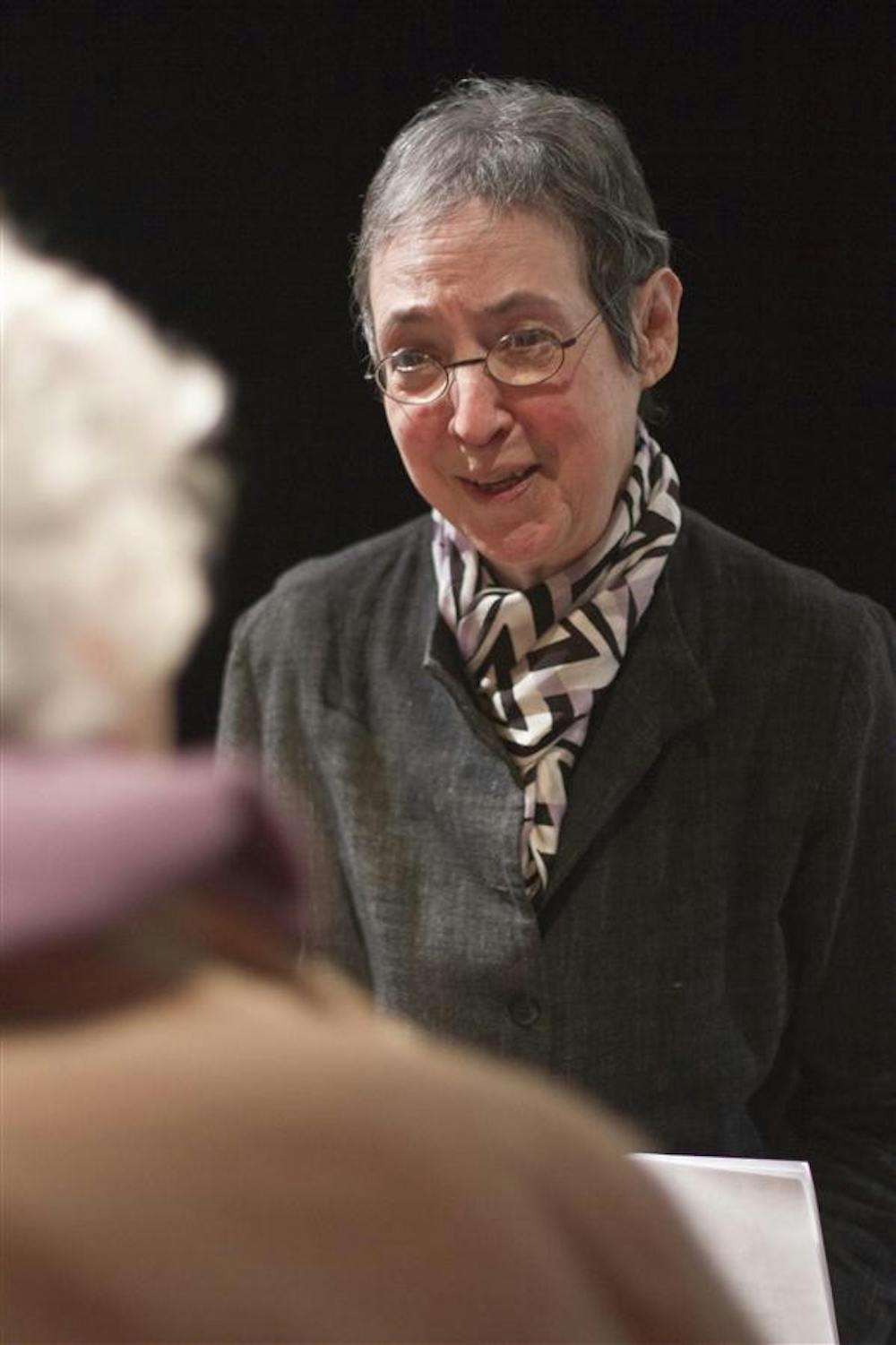A spotlight illuminated two chairs and a microphone on a stage at the Bloomington Playwrights Project. A screen in the background displayed a Frida Kahlo painting called “The Dream” — a rendering of Kahlo sleeping peacefully under a skeleton on its side.
IU professor and feminist scholar Susan Gubar said she identified with the skeleton after being diagnosed with ovarian cancer in November 2008.
The then-63-year-old author had her ovaries, uterus, fallopian tubes, appendix and part of her intestine removed — a process called debulking. Gubar describes both the emotional and physical effects of debulking in her recent critically acclaimed book, “Memoir of a Debulked Woman: Enduring Ovarian Cancer.”
On Monday evening, Gubar talked about her experience of writing the memoir and read excerpts on the stage of the Timothy J. Wiles Mainstage Theater at the Playwrights Project.
Daniela Matei, Gubar’s oncologist at the IU Simon Cancer Center in Indianapolis, also read from her poetry book “The Way Back Machine,” which was originally published in Matei’s home country Romania and was nominated for best debut book of 2011 by the Romanian Writer’s Union.
The event was part of the 72nd annual IU Writers’ Conference in which participants improve their writing in a week-long series of faculty-led workshops and classes in poetry, fiction and creative nonfiction.
“Susan taught me that you can be serious and funny, rigorous and kind,” said Bob Bedsoe, director of the IU Writer’s Conference and a former student of Gubar.
Gubar is also known for her research and academic writing in feminist theory, literature and criticism at the IU English department, and is a distinguished professor emerita.
Matei, who read three poems in English to the audience for the first time, said she and Gubar had little social interaction outside of the doctor’s office.
“I am here because she is here,” said Gubar, who is currently in remission, before Matei read her poetry.
Gubar spoke of three factors in the creation of her book: the ethics, the construction and the function of art in memoir writing.
She said her memoir aimed to increase awareness about the need for early detection and less harmful protocols in ovarian cancer treatment, and that her self-disclosure in the book involved “revelations about others.”
“Such exposures can profoundly injure readers with no recourse to tell their side of the story,” she said.
Although Gubar did not say that she used names, she mused whether she had the right to disclose the grief of her doctor who wept about his mother’s death, for example.
After Gubar’s book was published, she received emails from people who said they had gone through the same experience and that they had felt that pain.
“There’s a great deal of loneliness out there one quickly finds when publishing a memoir,” she said.
Gubar used art and poetry by Emily Dickinson and Gerard Manley Hopkins to express herself. She discussed Kahlo’s painting as a case in point.
“It seemed to ask, ‘How can we integrate the awareness and actuality of dying into our living?’” Gubar said.
Throughout chemotherapy, Gubar received support from her “nurturing colleagues” at the IU English department.
John Schilb, who specializes in composition, rhetoric and literary theory, said he has known Gubar for 14 years but does not want to be solely credited for comforting her throughout her illness.
“She’s an inspiration to all of us,” he said. “I’d rather emphasize the fact that she was able to write this book (while she was sick). She’s very impressive and a treasure to her community. The project kept her going.”
Ovarian cancer survivor, feminist scholar discusses craft of memoir writing

Get stories like this in your inbox
Subscribe





